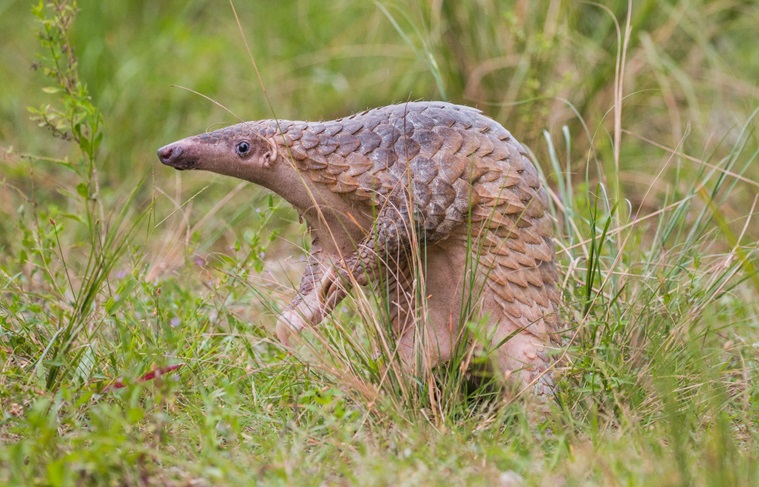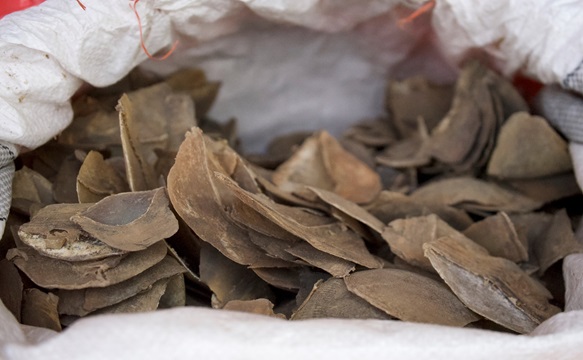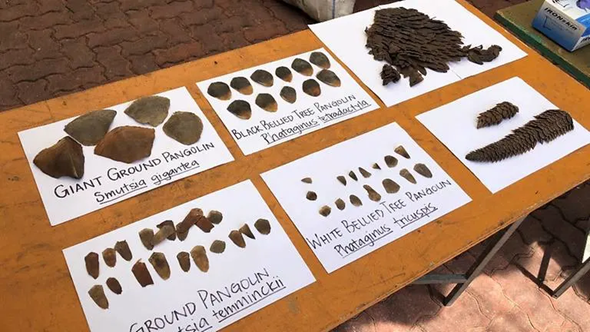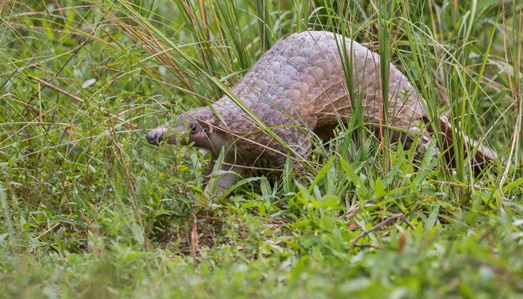
Photo by: Max Khoo
Pangolins are solitary, insectivorous, and primarily nocturnal mammals characterised by their unique scaly armour. Pangolins live in forests and grasslands. Depending on their species, they can either be arboreal, ground dwellers or both. There are eight extant species of pangolins found in Asia and Africa, with the Sunda pangolin being native to Singapore. As assessed by the International Union for Conservation of Nature (IUCN), the statuses of the eight species are:
- Asian Species:
- Chinese pangolin (Manis pentadactyla) - Critically endangered
- Philippine pangolin (Manis culionensis) - Critically endangered
- Sunda pangolin (Manis javanica) - Critically endangered
- Indian pangolin (Manis crassicaudata) - Endangered
- African Species:
- Giant Ground pangolin (Smutsia gigantea) - Endangered
- White-bellied pangolin (Phataginus tricuspis) - Endangered
- Black-bellied pangolin (Phataginus tetradactyla) - Vulnerable
- Temminck's Ground pangolin (Smutsia temminckii) - Vulnerable
Pangolins are believed to be the most trafficked non-human mammal in the world, due to high demand for their meat and scales. Pangolin scales are believed to have medicinal value in Chinese medicine, and are used to treat ailments such as lactation difficulties and arthritis, though their medicinal properties have largely remained unproven. Their meat is considered a delicacy in certain parts of Asia.
Tens of thousands of pangolins are believed to be poached each year for their meat and scales. In 2017, an estimated of 101,000 whole pangolin live equivalents were poached
According to the IUCN’s Red List of Threatened Species, all pangolin species are experiencing declining populations, with six out of eight species being endangered or critically endangered currently.
Trade regulations for pangolins and their derived products
All eight species of pangolins are listed in Appendix I of the Convention on International Trade in Endangered Species of Wild Fauna and Flora (CITES), the highest level of international protection under CITES which means a total ban on commercial trade in pangolins. As of 2020, China has also officially removed pangolin scales from traditional Chinese medicine and raised the status of pangolins to a national level one protected species, the highest level of protection within the country.

Singapore has been a Party to CITES since November 1986. As such, it is illegal to import and export pangolins and their derived products in Singapore under the Endangered Species (Import and Export) Act (Cap. 92A). Under this Act, it is an offence to possess, sell, offer for sale, or publicly display any CITES species, as well as their parts and derivatives without the necessary CITES permits. It is also an offence to kill, trap, take, or keep the Sunda pangolin under the Wildlife Act (Cap. 351) without approval.
In April 2019, NParks was involved in the seizure of two record-breaking shipments of pangolin scales – a 12.9-tonne and a 12.7-tonne shipment arriving from Nigeria. It was estimated that around 38,000 pangolins were killed across the two shipments that were worth more than S$100 million combined.
Identification of pangolin scales

Pangolin scales are made out of keratin, which is also a component found in rhino horns, saiga horns, human hair and fingernails. Pangolin scales are often sold as isolated scales for use in traditional medicine. It is difficult to identify a pangolin’s species based on morphological features of individual scales as the size of the scales can range from 2cm to 8cm depending on species, and which part of the body the scale was obtained from. The colours of the scales can vary between brown, grey and black. Hence, DNA forensics and techniques are employed to distinguish pangolin species and populations. These DNA techniques, such as DNA barcoding, mostly involve the amplification and analysis of mitochondrial DNA found in the scales and they are crucial in providing important information such as country of origin which will facilitate trade regulation and law enforcement.
How can you help?

If you spot any occurrences of poaching of pangolin in Singapore, illegal wildlife trade, and ownership of endangered or wild species and its parts, you may contact NParks using the online feedback form or call 1800-476-1600. All information shared with NParks will be kept strictly confidential.
If there is a need to import or export any products from CITES listed species, permits and certificates can be applied through NParks.